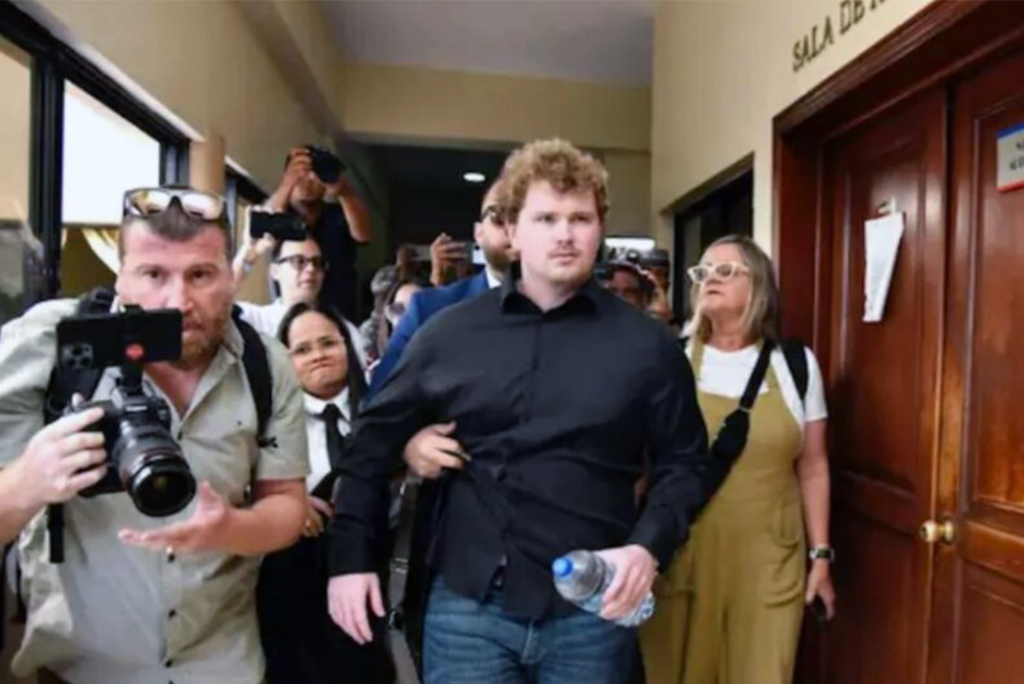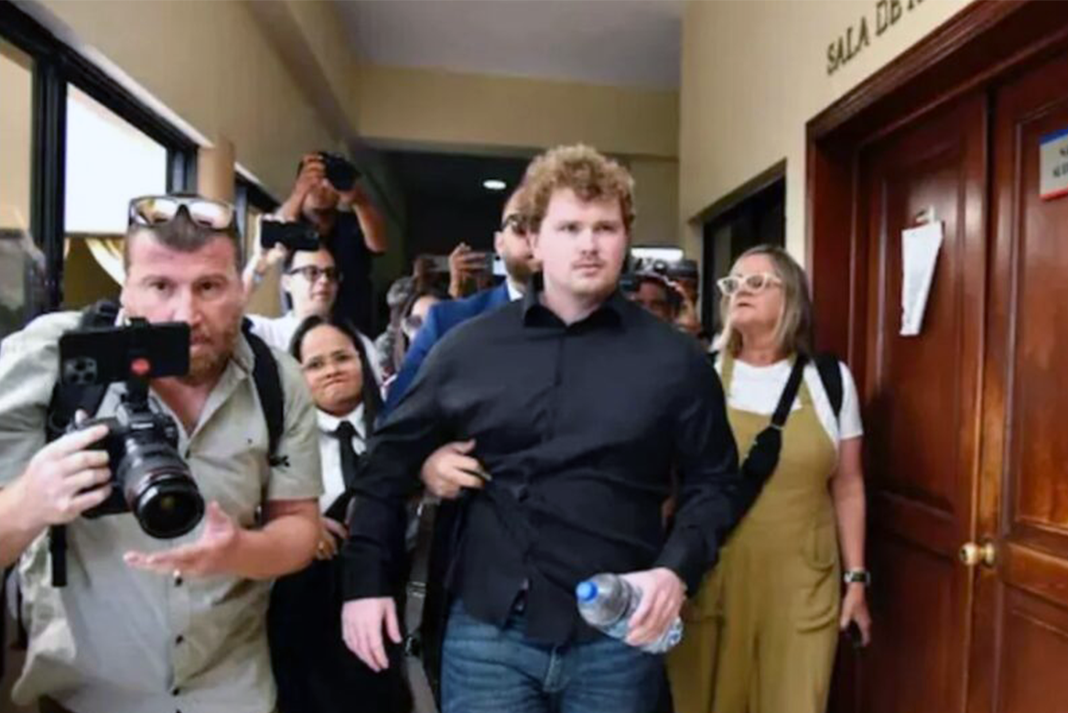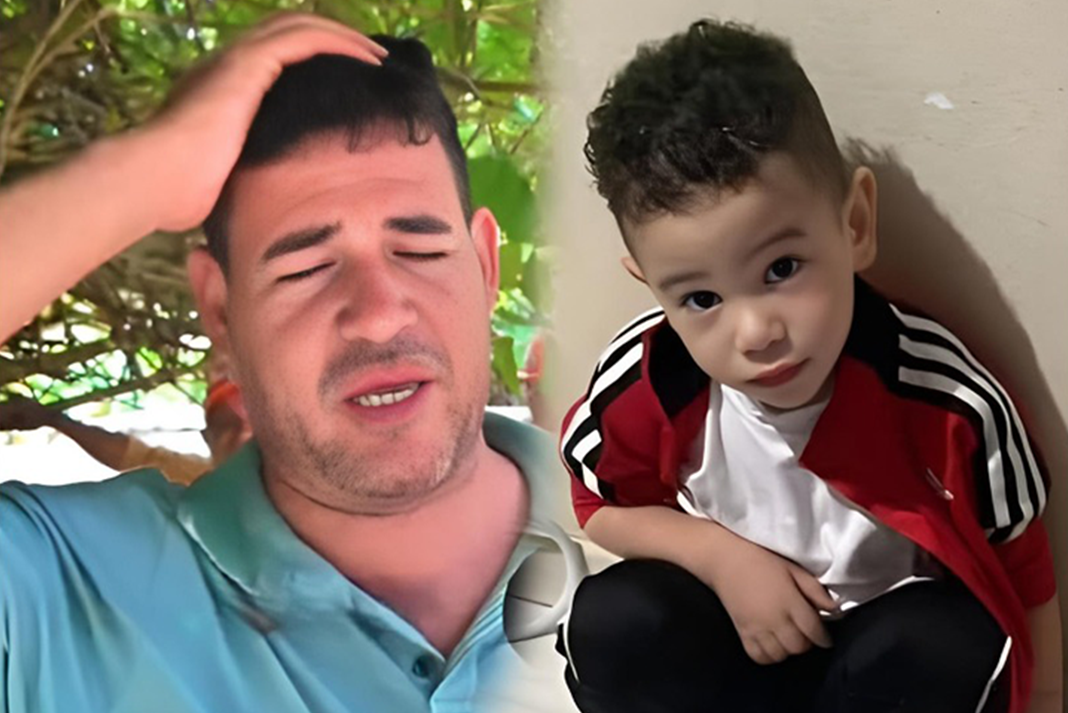La reciente sentencia emitida por el juez Edwis Andrés Rijo Delgado del Tribunal de Primera Instancia de La Altagracia ha sacudido a la opinión pública nacional. El magistrado dictaminó que la detención de Joshua Steven Riibe, ciudadano estadounidense arrestado en el Hotel Riu República en Punta Cana, fue ilegal y representó una clara violación de sus derechos fundamentales. Este caso, relacionado con la desaparición aún no resuelta de la turista india Sudiksha Konanki, plantea serias interrogantes sobre el respeto al debido proceso y la protección de los derechos humanos en la República Dominicana.
Una detención sin fundamentos legales
La detención de Joshua Steven Riibe ocurrió en el marco de la investigación sobre la desaparición de Sudiksha Konanki. Sin embargo, el juez determinó que dicha detención carecía de los elementos jurídicos esenciales, como una orden de arresto válida o una acusación formal. Según la resolución, el joven fue privado de su libertad sin evidencia directa que lo vinculara con un crimen.

Complicidad institucional:El juez señaló que la Fiscalía de La Altagracia, la Policía Nacional, la Dirección Central de Investigaciones Criminales (DICRIM), la Policía Turística (POLITUR) y el Hotel Riu República actuaron de manera conjunta para impedir el libre tránsito de Riibe. Al quitarle el pasaporte, el hotel restringió ilegalmente su movilidad, lo que representa una violación de sus derechos como ciudadano extranjero.
Violación al plazo legal de detención:La Constitución dominicana y las normas procesales estipulan que cualquier persona arrestada debe ser presentada ante un juez en un plazo máximo de 48 horas. En el caso de Riibe, esa norma no fue respetada, ya que permaneció detenido por más de ocho días sin comparecer ante un tribunal.
El hábeas corpus como herramienta de defensa
La defensa legal de Riibe presentó un recurso de hábeas corpus argumentando que su arresto era arbitrario. El juez acogió esta solicitud y determinó que la detención era ilegal, ordenando su inmediata liberación.
Derechos fundamentales vulnerados:En el fallo se destaca que Riibe fue tratado como un sospechoso sin que existiera una prueba concreta en su contra. Ser testigo en una investigación no justifica su privación de libertad.
Actuación injustificable del Ministerio Público:Los fiscales Claudia Lorena Garrido Caraballo y Luis Omar García fueron señalados por el juez por actuar sin justificación legal suficiente, utilizando la investigación como pretexto para mantener detenido a Riibe.
El juez Rijo Delgado rechazó las solicitudes de sanciones económicas contra los involucrados, pero dejó claro que los costos del proceso deben ser asumidos por el Estado.
Mensaje a las instituciones:La sentencia envía un fuerte recordatorio a las autoridades sobre la importancia del debido proceso. No puede permitirse que el afán investigativo supere los límites legales y constitucionales.
Reacciones nacionales:El caso ha generado amplio debate en medios de comunicación y redes sociales, cuestionando la actuación de las instituciones involucradas y exigiendo reformas que garanticen una mayor transparencia y respeto a los derechos individuales.
El fallo a favor de Joshua Steven Riibe representa una victoria para la legalidad y el respeto a los derechos humanos. Aunque la desaparición de Sudiksha Konanki sigue siendo un misterio, el juez recordó que ninguna investigación puede justificar la violación de los derechos fundamentales de las personas. Este caso refuerza la necesidad de actuar siempre dentro del marco de la ley y pone en el centro del debate la urgente necesidad de fortalecer el Estado de Derecho en República Dominicana.
Court rules arrest of Joshua a u.s citizen in Sudiksha case was illegal

A recent ruling by Judge Edwis Andrés Rijo Delgado of the Court of First Instance of La Altagracia has sent shockwaves throughout the Dominican Republic. The judge declared the arrest of U.S. citizen Joshua Steven Riibe at the Riu República Hotel in Punta Cana to be unlawful, constituting a clear violation of his fundamental rights. The case, linked to the unresolved disappearance of Indian tourist Sudiksha Konanki, raises serious concerns about due process and human rights protections in the Dominican Republic.
An arrest without legal foundation
Joshua Steven Riibe was detained as part of the investigation into Sudiksha Konanki’s disappearance. However, the judge found that the arrest lacked essential legal elements, such as a valid arrest warrant or a formal accusation. According to the ruling, the young man was deprived of his freedom without any direct evidence linking him to a crime.
Institutional complicity:The judge noted that the La Altagracia Prosecutor’s Office, the National Police, the Central Directorate of Criminal Investigations (DICRIM), the Tourist Police (POLITUR), and the Riu República Hotel acted jointly to prevent Riibe’s free movement. By confiscating his passport, the hotel unlawfully restricted his mobility, violating his rights as a foreign national.
Violation of detention time limits:Dominican constitutional and procedural law mandates that any arrested person must be brought before a judge within 48 hours. In Riibe’s case, this rule was ignored, as he remained detained for over eight days without a court appearance.
Habeas corpus as a legal defense toolRiibe’s legal team filed a habeas corpus petition, arguing that the arrest was arbitrary. The judge accepted the petition, ruled the detention unlawful, and ordered his immediate release.
Violation of fundamental rights:The ruling emphasized that Riibe was treated as a suspect despite no concrete evidence. Merely being a witness in an investigation does not justify being held in custody.
Unjustified actions by the Public Ministry:Prosecutors Claudia Lorena Garrido Caraballo and Luis Omar García were criticized by the judge for lacking sufficient legal grounds and using the investigation as an excuse to detain Riibe.
Judge Rijo Delgado denied requests for financial sanctions but stated that the State must cover the legal costs of the proceedings.
Message to authorities:The ruling serves as a powerful reminder of the importance of due process. The drive to investigate cannot override constitutional and legal boundaries.
National reactions:The case has sparked broad debate in the media and on social platforms, with many questioning the conduct of the involved institutions and calling for reforms to ensure greater transparency and individual rights protection.
The ruling in favor of Joshua Steven Riibe represents a triumph for legality and human rights. While the disappearance of Sudiksha Konanki remains unsolved, the judge emphasized that no investigation can justify the violation of fundamental rights. This case reinforces the importance of staying within the boundaries of the law and highlights the urgent need to strengthen the rule of law in the Dominican Republic.




